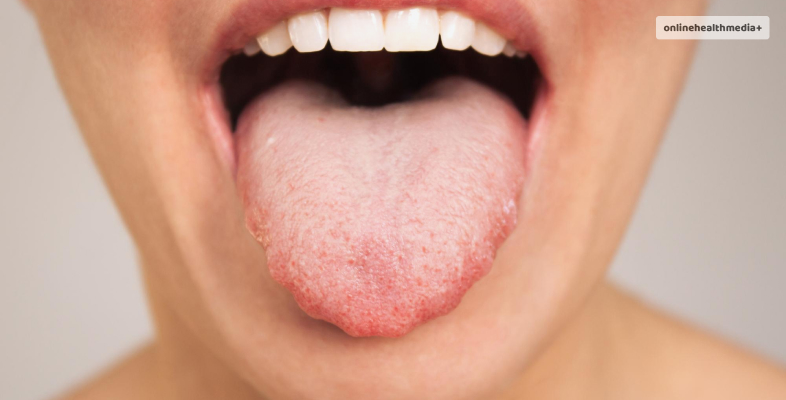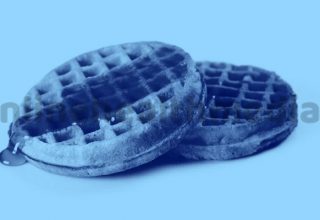Transient Lingual Papillitis: A-Z Of This Condition.
Note: The information in this article is not intended to substitute professional medical advice, diagnosis or treatment. All images and text present are for general information purpose only.
Transient lingual papillitis is a common tongue inflammation that can affect one or several of the fungiform papillae. These papillae are present on the tongue and can become inflamed for several reasons.
Papillae are small bumps on the tongue that help us taste food. Commonly known as lie bumps, these can be related to fungiform papillary glossitis and familial lingual papillitis.
The following article will examine the condition while discussing the causes, symptoms, and treatment. The article will focus on highlighting the groups that are more likely to develop the condition.
Contents
What are fungiform papillae?

One of the particular types of bumps on the tongue, the fungiform papillae, have taste buds, temperature receptors, and a good blood supply to keep it all functioning. The taste buds present in these bumps are especially for bitter taste.
These are present along the sides of the tongue, the top, and specifically towards the tip. These bumps are pink, flat, and evident to the eye. An interesting fact about these bumps is that the number varies between females and males.
Females have a higher number of these papillae than males. Moreover, they become more in number after menopause.
The most well-known condition of the fungiform papillae is the strawberry tongue, which is seen due to scarlet fever. Moreover, this was also quite prominent as a sign of COVID-19 infection.
More than 50% of the population is affected with transient lingual papillitis. The condition is more common in younger women.
Nevertheless, individuals of various age groups can experience its impact. The prevalent methods of acquiring this inflammation are elucidated in the subsequent section.
What causes transient lingual papillitis?

The common causes of this inflammation are as follows:
- Covid-19 was one of the recent causes that was seen in individuals.
- You burn your tongue.
- Consuming excessively acidic or spicy food.
- Increased use of alcohol or cigarettes
- Poor oral hygiene
- Using orthodontic appliances such as retainers.
Who can get it?
The most noted cases of transient lingual papillitis have been in younger women. In addition, the condition is also observed in people who experience triggers such as hormone fluctuation, stress triggered by certain foods, and gastrointestinal upsets.
The condition can become prominent in children, especially during the spring season. Moreover, children who are in contact with other children can cause a rapid spread of the condition. Despite not having any causes that may qualify it to be contagious, it
Symptoms of transient lingual papillitis
The transient lingual papillitis side of the tongue may even present itself when you go for a checkup. The following are the symptoms of transient lingual papillitis:
- Burning or tingling feeling on the tongue
- Appearance of one or more painful bumps that can be whitish or yellow and red.
- Sensitivity to hot foods
- Difficulty eating spicy food
- Dry mouth and distortion in taste
The symptoms vary depending on the type of lingual papillitis. For example, you may experience these symptoms too:
- Fever
- Swollen lymph nodes
- Redness and cracks on the corners of the mouth
- Excessive salivation
- Canker sores on lips, cheeks and mouth
- Scattered pink spots
These symptoms can be warning signs that you must not ignore in order to heal from the condition as soon as possible.
It is also necessary to take a few precautions such that you are avoiding any risk of further damage to your tissues.
Some necessary points to remember:
- You must not pop the bump, especially in the eruptive lingual papillitis. This can increase your chances of getting an infection.
- As per recent research, ulcerative lingual papillitis occurs in children with a median age of 3-5 years. From here, it can spread to other family members.
Save yourself from the superstition that only people who lie get these bumps. The alternative name it is also known as can cause a lot of confusion and stigma around it, which can delay treatment.
FAQs
If you notice the signs that are listed in the article, then you must go ahead and consult a doctor. The doctor will conduct a few tests that can confirm the condition.
By examining your tongue, they can tell you if the condition requires medical intervention or if it is something that will go away on its own.
In addition, they will also ask questions that can help them know more about your condition- and get to the root of the issue.
One common question that they may ask is if you notice any change after consuming a specific food item. This is because you may even be allergic to food items such as solid or liquid foods. This may even be an allergic reaction to ingredients in toothpaste or mouthwash.
The treatment options that exist for this condition include:
1. Drinking cold drinks
2. Saltwater rinse
3. Avoiding spicy, hot food till the bumps go away
4. Use prescribed antiseptic mouthwash
5. Application of topical steroid that is received through prescription
6. Avoid oral hygiene products that can irritate the tongue.
If the condition does not settle even after this, you must consult your doctor immediately. This will help them understand what is going wrong and what other treatment options can be taken.
Yes, you may notice bumps on your tongue due to conditions such as:
1. Scarlet fever is a bacterial infection that can develop in people with strep throat.
2. Giant cell fibroma, which is an oral mass that can be commonly seen in White people
3. Pyogenic granuloma: A non-cancerous tumor that is raised, it can bleed easily.
Conclusion
This was all on the transient lingual papillitis. The lie bumps can be minor inflammations that occur on your tongue and can be due to several reasons.
One of the most common reasons is inflammation of the taste buds when you have something hot or too spicy.
The article also features a few frequently asked questions that can help solve common queries regarding the condition.
Do you have any hacks that can help us? Let us know in the comments below.
Also read
- A Harmonious Journey: Aging In Place With Private Home Care.
- A Unique Guide To Selecting The Perfect Charleston Dental Implant Virtuoso.
- Ozempic For Weight Loss: Deciphering The Enigma Of Effectiveness And Holistic Health.



